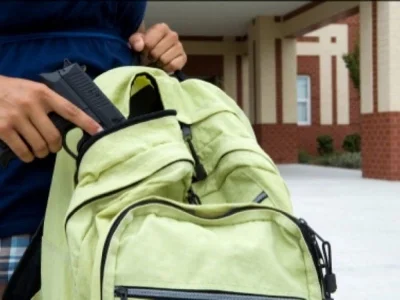Abigail Tingle M.S.
On February 14, 2018, the Florida school shooting that resulted in the death 17 people marked the 12th school shooting to occur within the United States since the beginning of the year. This means that a school shooting has occurred within our country almost every two days… and we are only two months into the new year.
Mass shootings and violence within schools used to be a rare and shocking occurrence. Now it seems that these events are rampant within our country. As a result of the frequency of these tragic events, society risks becoming desensitized to disasters that don't affect them directly. When there is less attention or concern for these devastating acts, their frequency increases. It is crucial that we remain aware of the significance of these events and the impact that it has on our children, communities and our nation as a unit so that mass shootings can be prevented.
When there is a shooting or violent event that takes place within a school, the motive of the attack is thoroughly analyzed from a mental health standpoint. Often, the individual who commits the crime is suffering from emotional distress because of personal life occurrences. People who turn violent are frequently victims of bullying, people who have not found a way to make the bullying stop, have hit a personal limit and are desperate to make it stop. They typically feel isolated and rejected by their peers and sometimes even their family. Without a good support team, these individuals may become more isolated or withdrawn. Less frequently, the shooter may be copying behavior they’ve seen, or heard about. These are only a few of the reasons why a person may become violent. Some risk factors are known to increase the likelihood that a young person will become violent.
What are some risk factors?
- History of violent victimization
- History of early aggressive behavior
- Involvement with drugs, alcohol or tobacco
- Poor behavioral control
- High emotional distress
- History of emotional problems
- Antisocial beliefs and attitudes
- Exposure to violence and conflict in the family
- Low parental involvement
- Low emotional attachment to parents or caregivers
- Association with delinquent peers
- Social rejection by peers
- Lack of involvement in conventional activities
- Poor academic performance
- Low commitment to school and school failure
It is imperative that we become aware of these risk factors and spread this knowledge to others so that unusual behaviors do not go unnoticed and indications of violence are more widely identified, reported and understood. See something, say something. For more information, visit the CDC website below.
https://www.cdc.gov/violenceprevention/youthviolence/riskprotectivefactors.html#Risk%20Factors.

